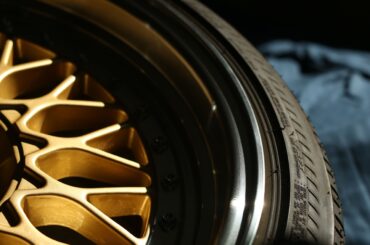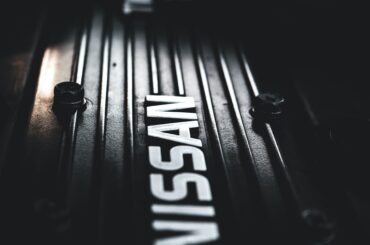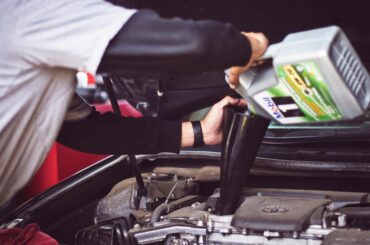As a driver, you have a strong bond with your car, and you can usually tell when anything is wrong with it based on how it behaves on the road. You’re approaching a stop sign one day when your car begins to tremble upon braking, and you’re left wondering Why Your Car Shakes When Braking.
There are several reasons why your vehicle may shake. If you’ve been driving for a long, and you are aware of these shakes. It’s critical to solve this issue before it becomes a more significant problem because driving safety should always be first in a driver’s lexicon.
Note: It’s always a good idea to speak with your mechanic to figure out what’s wrong before diving into anything you’re unfamiliar with
Continue reading the article to learn more about all possible causes of this problem. We will also give you some helpful hints for the future to avoid such problems
Contents
What are Car Braking Systems?
Before you consider, Why Your Car Shakes When Braking, every motorist should have a basic understanding of how their braking system works. Kinetic energy, or the energy of motion, is abundant in a moving automobile, and the brakes must convert the kinetic energy into heat via friction to bring a car to a complete stop. Almost all modern automobiles get equipped with two types of brakes.
Disc Brakes: In a disc brake, a metal disc called the rotor gets attached to the wheel. Each rotor gets fitted with a caliper, a gripping device that enables the rotor and wheel to spin freely until the driver applies the brakes.
Drum Brakes: Drum brakes connect a hollow metal drum to the wheel, and when hydraulic pressure gets applied through the brake pedal and braking system, shoes within the drum apply friction, thus slowing the rotation.
Possible Causes of Why Your Car Shakes When Braking
Here are some of the most prevalent causes of Why Your Car Shakes When Braking. Next time when braking, attempt to match them with the symptoms you notice, and this will undoubtedly assist you in removing the cause.
ABS
The first question you should ask yourself is if your car has anti-lock brakes (ABS) because If you’re traveling in damp circumstances, you may also see if ABS cause the shaking. When the wheels lock up and slip, the ABS detects this and intervenes to keep you in control of your car.
Nothing to worry about in this case
Break Shoe or Pads (Top Problem)
The braking system may be the most common source of automobile shaking during braking, especially at highway speeds. When you step on the brake, your barking pads get subjected to pressure and heat.
The vibration you’re experiencing might be the wear indicator on the brake pad, which generates a high-pitched screech when it’s time to replace it. When pumping the brakes, this metal tab on the pad may create some minor vibration.
Regularly inspect your brakes. The old brake pads will need to get replaced since they will rip and wear. It’s time to replace the pads if they’ve shrunk to 1/4 of their original size. To compensate for the unevenness, a car repair may use a variety of tactics, but replacing them is a safer and more straightforward option. Some mechanics also recommend changing the brake pads and rotors simultaneously.
Note: Don’t forget to look at the rotors as well. The brake pad presses the rotors to assist slow your car down. Also, if the rotors are out of balance, the vibrating tremors may be the result.
Unbalanced And Under-Inflated Tires
If your automobile shakes at a typical pace; such as 50 to 60 mph, but stops shaking at more incredible speeds, you should get your tires checked. It’s possible that your wheels are under-inflated or out of alignment or that you have an imbalanced tire.
If your tires are under-inflated or unbalanced in certain areas, your car’s suspension system may have to work harder. It can also make the steering wheel shake, making it difficult to maintain control of the vehicle.
Make sure your tires are in good shape before you embark on your adventure. If there is a problem, your auto service provider can check it out and quickly rectify it by repairing the tire or simply replacing it with a new one.
Faulty Suspension
Continuous bumps can damage the axle of your automobile, causing the suspension to fail over time. Suspension issues may be to blame if your car rattles upon coming to a halt. If you notice shaking when turning the wheel rather than simply braking, it’s most likely a suspension issue
You’ll need to take your car to a mechanic for a thorough examination and diagnosis.
Tip: Another approach to determine whether you have a suspension problem is to see if your car shakes not just when you brake but also while you drive normally.
Engine Problems (Very less often)
Spark plugs and engine air filters may be malfunctioning. Try to check and replace both of them frequently since they won’t survive indefinitely. It would be best to overlook it because it might mean your engine has to get repaired.
Always follow the manufacturer’s directions if you want your engine to run smoothly.
Why Your Car Shakes When Braking – Bottom Line
Whatever is causing your automobile to shake when you stop, you must investigate and address the issue. There are a variety of techniques to fix a shaking car. However, you should not undertake these fixes unless you are an expert. Bring your automobile to a reputable automotive dealer, and they’ll make a diagnosis based on the frequency characteristics.
The safety of you and your loved ones is at risk; and you should take precautions to avoid any potential harm. Use the advice I’ve provided here to keep driving safely and worry-free. Keep in mind that repairs might cost anywhere from a few dollars to thousands. It all depends on the make and model of your vehicle, as well as the cause for your visit.






